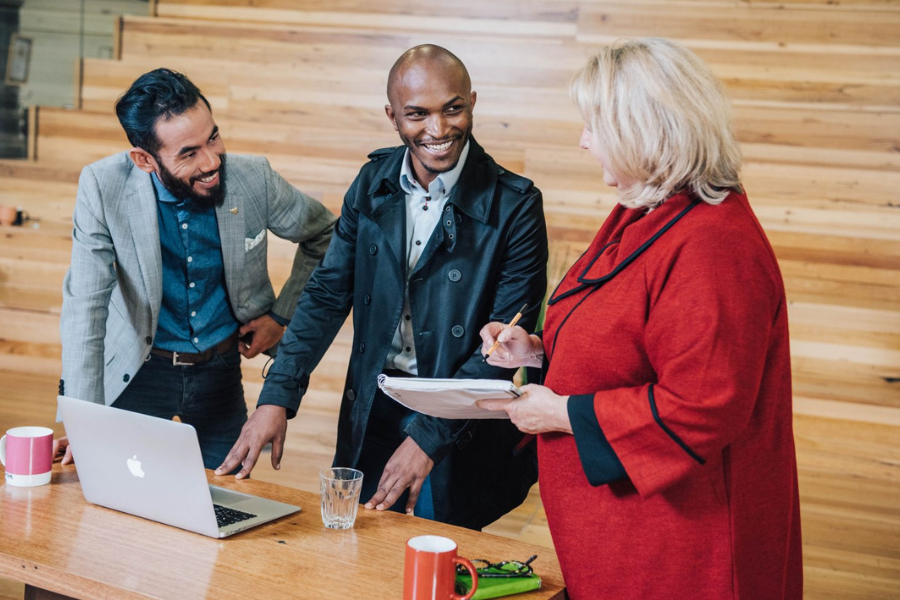Millions of people put blood, sweat and tears into chasing the entrepreneurial dream. You’d be hard pressed to find a business founder who hasn’t experienced the ‘rollercoaster ride’ of emotion that comes hand in hand with starting a company and keeping it afloat.
While growing pains are normal during the early stages of a business, founders often don’t foresee the amount of pressure that comes from all angles once they are in the thick of it: from shareholders, industry bodies, customers, employees, family, friends and critically, from themselves.
Combating workplace stress and burnout is crucial to protect individual health as well as nourishing the growing Trans-Tasman startup sector. While it’s important that founders promote good mental health in the workplace, it’s equally important to explore mental health as a startup community so founders, too, can be properly supported.
It’s more personal than numbers
We all know the statistics. Entrepreneurship and innovation is high on the government agenda, with $1.32 billion raised in venture capital last year along with investments in innovation precincts, accelerator programs, incubators, coworking spaces and events. While growth is supported, there is a gaping economic disparity of $12.6 billion a year, lost to founder and employee struggles with mental health in Australasia.
Consequences of poor mental health for Australian small business owners include that one third are kept up at night dealing with customer issues and interactions and 24 per cent have even become physically unwell due to stress from the weight of responsibility.
But the reality of what happens is more personal than numbers can tell us. My first exposure to what founder burnout felt like was in my theatre days. With the radical artist lifestyle (high time commitments, low pay and high adrenaline environment), I was struggling to balance my passion and drive with the ability to value myself in the gaps between projects. We (my cofounders and I) realised that we needed to invent a new way of working that allowed us to continue our dream rather than quitting.
We were lucky enough to have each other for support, but we realised there was nowhere near enough support for founders who were going through similar struggles. In response, we decided to demonstrate in the most radical way we knew how: to pledge to put our collective health and wellbeing above the ‘to-do list’, and help others do the same by founding CoLiberate — a Wellington-based startup that is enabling the emotional capacity of New Zealand.
Australia needs to invest in an ‘emotional fitness culture’
There is no ‘one size fits all’ solution when it comes to mental health; everyone goes through their own experiences and challenges. That said, an overarching structure that offers customised support to individual can be put in place. Think of physical fitness centres; they offer a myriad of choices to suit people’s needs from 1:1 sessions with a trainer, instructor-led classes from yoga to spin, or options to train individually, be it on the weights floor or in the pool.
If Australia spent the same amount on personal emotional wellbeing as its $2.4 billion physical gym industry, it would add measurable value to the nation’s productivity and happiness.
‘Emotional wellbeing’ is more than having a spa day or going to a yoga class. It starts to include any activity that affects mental health. This can be 1:1 wellness coaching, meditation or emotional workouts (using props as complex as clay, or as simple as pen and paper). The outcome of these activities is to help people address their emotions and guide them to feel positively challenged when they embark on their rollercoaster ride.
There are two ways this culture can be implemented across Australasia. The first is for politicians to enact policy that supports investments in ‘personal wellbeing’ and make mental health certificates, such as the internationally recognised Mental Health First Aid Australia certificate, mandatory in organisations.
The second is to work directly with startup communities to encourage more collaboration and support in the industry from the ground up. Instead of putting business founders under more pressure than they already are to push policy level change that address mental health in the workplace, the startup community — whether in Wellington, Sydney or San Francisco — can come together, just as my cofounders and I did back in our theatre days, to radically demonstrate for a ‘emotional fitness culture’ that truly supports Aussie innovation.
Sarah Tuck is founder and co-CEO of Wellington-based startup CoLiberate
Featured Image: City of Melbourne/That Startup Show/Photographer Wren Steiner




















Trending
Daily startup news and insights, delivered to your inbox.